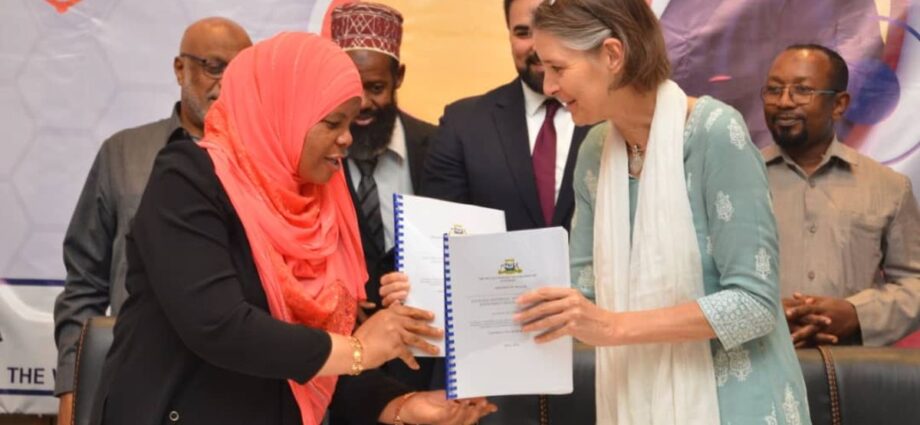Unguja. The Ministry of Health in Zanzibar has entered into a contract with the United Nations Children’s Fund (Unicef) for the purchase of supplies aimed at improving health services, especially for mothers and children.
Through the procurement contract valued at $12.5 million (Sh32.3 billion), Unicef will support the provision of essential medicines and nutritional products, medical equipment for renovated health facilities, vehicles for the Department of Preventive Services, and project coordination teams.
Another task to be undertaken by Unicef is providing ICT equipment and networking for 52 Primary Health Care Units (PHCU+) and 90 Primary Health Care Service Units (PHCU).
Speaking during the signing of the agreement, Health Minister Ahmed Mazrui said this collaboration is a significant step towards developing the healthcare system through the Tanzania Reproductive, Maternal, Newborn and Child Health Investment Plan (TMCHIP), funded by the World Bank from 2023 to 2027 with $25 million (Sh64.7 billion).
“This plan is not just a plan but a transformative journey aimed at creating a robust healthcare delivery system that serves everyone, especially the most vulnerable groups – mothers, children, adolescents, and youth.”
According to Mazrui, the project aims to improve the delivery of quality reproductive and child health services.
“We are committed to raising standards of care at every level, ensuring that every mother and child receives the best healthcare services,” he said.
He noted that a well-trained healthcare workforce is crucial, so they are dedicated to enhancing training and deploying healthcare professionals.
Additionally, they will strengthen and improve the accessibility and use of Electronic Health Systems: Integrating ICT into healthcare will enhance patient record management and service delivery efficiency and promote user-friendly Reproductive Health Services for youth.
“We aim to make reproductive health services easier and more accessible for youth, at health facilities and within communities,” said Mazrui.
Unicef Representative in Tanzania, Elke Wisch, said the partnership established between the Revolutionary Government of Zanzibar, Unicef, and the World Bank signifies the commitment of all partners to prioritize the well-being of women and children and lay the foundation for a better future for Zanzibar’s health.
She said Unicef has several years of experience in this area and is uniquely positioned to draw expertise and best practices from around the world to make Zanzibar a model of excellence in digital health.
Among the key successes of the digital health partnership between the Government of Zanzibar and Unicef are the design and development of client feedback mechanisms, known as (Zan Health Feedback), and the design and creation of a digital tool to support health worker management.
“Through this contract, Unicef is pleased to contribute to improving service delivery through the purchase of high-quality medical equipment and other health products, including laboratories and ICT equipment,” said Wisch.















